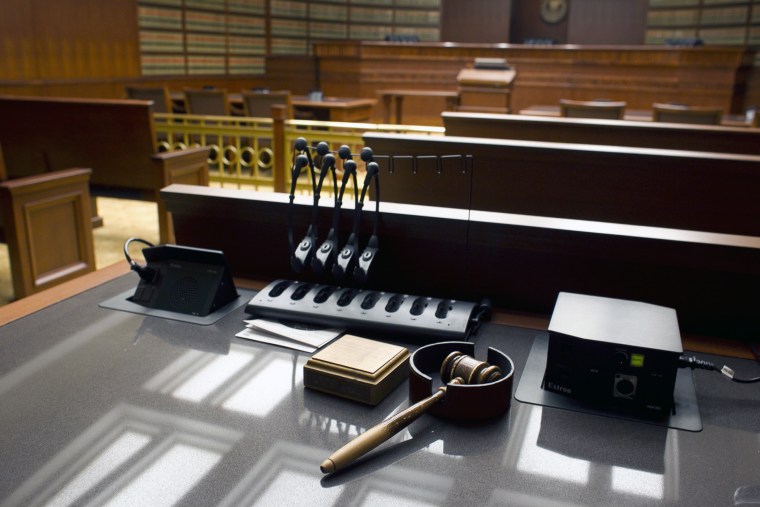When it comes to Donald Trump's far-right judicial nominees, Senate Republicans generally play the role of rubber stamp: whomever the president wants on the federal judiciary, the president gets. There are, once in a great while, some notable exceptions.
In July, for example, Ryan Bounds' nomination for the 9th Circuit Court of Appeals was derailed when Sen. Tim Scott (R-S.C.) reviewed his history of racially provocative writings and decided to vote against Bounds. Yesterday, to the surprise of nearly everyone, it happened again.
A second Senate Republican has come out against controversial Trump judicial nominee Thomas Farr, a move that is certain to sink his chances of confirmation.Sen. Tim Scott, R-S.C., the Senate's only African-American Republican, said in a statement that he could not vote for Farr because of concerns about his record.
On Wednesday, there was a procedural vote on Farr's nomination, and Scott voted with his party, paving the way for the conservative's confirmation. But almost immediately, the South Carolina Republican made clear that he was still undecided ahead of the final vote. (Alaska's Lisa Murkowski told reporters yesterday that she, too, was undecided.)
Sen. Jeff Flake (R-Ariz.), meanwhile, is opposing every nominee until members are allowed to vote on his bipartisan bill to protect Special Counsel Robert Mueller, though in this case, the retiring Arizonan says he has his own concerns about Farr's record.
With 49 Senate Democrats united in their opposition to Farr, opponents of the nomination only need two GOP senators to break ranks. As of late yesterday, they now have those two votes.
To understand why there's so much interest in one district court nominee, it's important to understand that Thomas Farr isn't just another Trump court pick.
As we discussed the other day, Trump has sent some offensive nominees to the Senate for lifetime positions on the federal bench, but few district court nominees have faced this kind of criticism.
As Rachel noted on the show, in 1990, Farr was a lawyer for then-Sen. Jesse Helms (R-N.C.) in a year in which the notoriously racist senator sent 125,000 postcards to black households in North Carolina, trying to intimidate African-American voters. The scheme drew a civil complaint from the Justice Department, which ultimately led Farr to sign a consent decree.
In the years that followed, Farr proceeded to develop and implement some of the most racially-specific voter-suppression tactics ever seen in the United States.
Ron Klain, a former chief of staff to Al Gore and Joe Biden, said this week that he’s worked on federal judicial nominations for more than 30 years, and he considers Farr the worst he’s ever seen.
It's worth emphasizing that the demise of Farr's nomination isn't yet official. The final vote on his nomination was supposed to be yesterday, but it was delayed until next week after a senator left town to attend a funeral. There's still some time, in other words, for Republicans to pressure Scott and/or Flake.
What's more, as discouraging as this may sound, the White House could re-nominate Farr in the next Congress, when the Senate's Republican majority will have 53 members and it'll be even easier to confirm Trump's far-right judicial nominees.
That said, at least for now, Farr's opponents got the miracle they were looking for.
